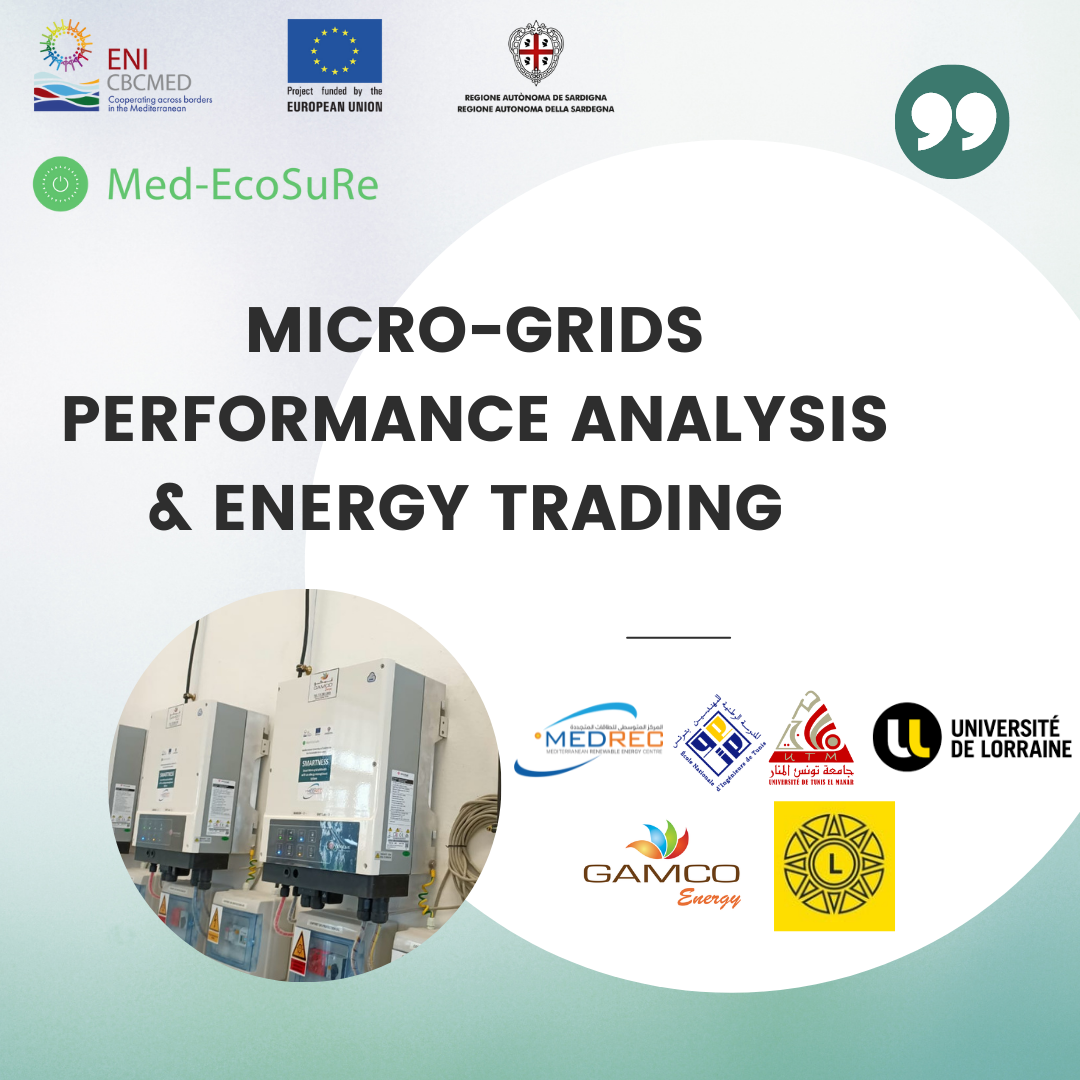Med-EcoSuRe conclut un projet de Master sur la performance et la viabilité technico-économique des Micro-réseaux en Tunisie

Ce contenu est disponible seulement en anglais
On the 17th of January 2022, a master thesis defense, carried out in the framework of Med-EcoSuRe project, was successfully conducted by a group of students from Université de Lorraine. This master project was proposed within a challenge-based module of the ERASMUS MUNDUS Master DENSYS (Decentralised smart ENergy SYStems) related to the management of energy in decentralized energy systems and including the design of energy networks, demand-side management and optimization.
The master challenge, which started in February 2021, assesses the performance and techno-economic viability of a Micro-Grid pilot (SMARTNESS- Smart Micro-grid plAtfoRm wiTh aN Energy management SyStem) implemented in Tunisia as a demonstration action of Med-EcoSuRe. This challenge was proposed and supervised in collaboration with Mediterranean Renewable Energy Centre (MEDREC) and the National Engineering School of Tunis (ENIT), partners of the project, and Gamco Energy and Lightency, stakeholders of the project.

The student presented the work carried out during the challenge period, and the main findings including:
- Optimization of the existing Micro-Grid platform, SMARTNESS, while adopting different architectures and Renewable Energy sources, and this is with the objective to assess the energy performance and the economic feasibility of Micro-Grid solutions in a Tunisian context while considering several factors (weather condition, utility tariff, discount rate, etc);
- Numerical modeling of SMARTNESS platform including its components : PV modules, battery modules and energy management strategies (EMS), with the aim to investigate the systems behavior under different weather and operating conditions;
- Development of an energy trading model to predict the energy exchange within the Micro-Grid community. This phase included the study of several energy market strategies, and then the adoption of the most suitable model to the Tunisian context;
- Assessment of the Micro-Grid peroformance by setting a number of Key Performance Indicators (economic, environmental, and electrical).
The students highlighted also that “the project carried out is based on the promotion of sustainable development in Tunisia, through the integration of renewable energies and the implementation of Micro-Grids for energy supply. Such technologies can lead to environmental benefits, economic advantages, and increased efficiency of the electrical supply. This is closely linked to the realization of the UN Sustainable Development Goal 7, which is aimed to ensure access to affordable, reliable, sustainable, and modern energy for all.”







